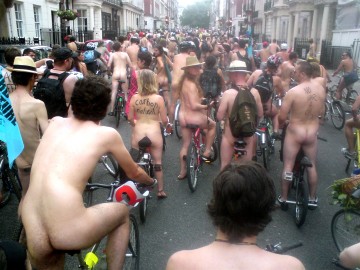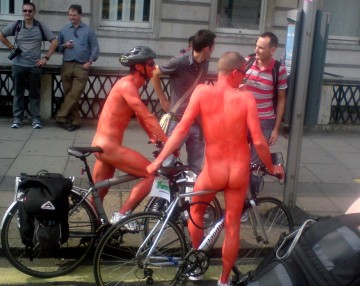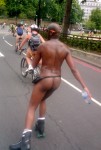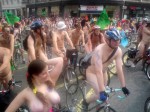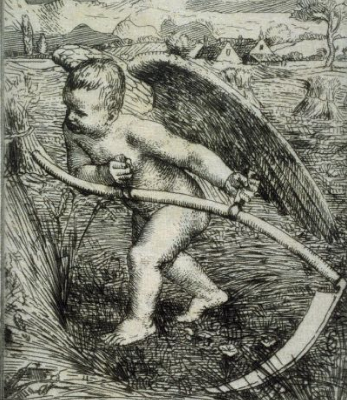 Yesterday I took down my father's full size scythe for the first time since his death in 1990. He looked after it well, cleaning and honing the long blade, ideally shaped for cutting down the nettles at the bottom of the garden. The long wooden handle, with its two hand grips worn smooth from years of use, curves with potent elegance, making scything a kind of dance: my body twists as the blade slices, lopping the heads off the nettles as they fall to the ground. But I've never used my father's scythe before, and I haven't yet sharpened it and the blade catches on something tough in the undergrowth. He always took care never to do that. The thin, curved tip of the blade is torn and as I fiddle with it pointlessly, comes away in my hand. And in that moment I am suddenly ashamed as I hear his voice in my head: 'now that wasn't a very clever thing to do'.
Yesterday I took down my father's full size scythe for the first time since his death in 1990. He looked after it well, cleaning and honing the long blade, ideally shaped for cutting down the nettles at the bottom of the garden. The long wooden handle, with its two hand grips worn smooth from years of use, curves with potent elegance, making scything a kind of dance: my body twists as the blade slices, lopping the heads off the nettles as they fall to the ground. But I've never used my father's scythe before, and I haven't yet sharpened it and the blade catches on something tough in the undergrowth. He always took care never to do that. The thin, curved tip of the blade is torn and as I fiddle with it pointlessly, comes away in my hand. And in that moment I am suddenly ashamed as I hear his voice in my head: 'now that wasn't a very clever thing to do'.
diaphania - Page 10
-
Cut through in time
-
Cashing up in the attic
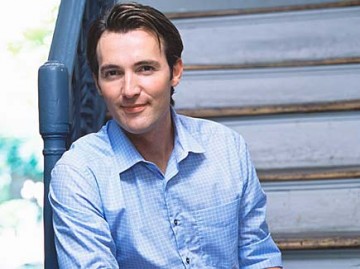 "My mother always said never trust a man with matching belt and shoes" - so said winsomely entertaining TV presenter Angus Purden of my outfit when I was persuaded to take part in the filming of an episode of one of the BBC's most popular day time shows, 'Cash in the Attic'.
"My mother always said never trust a man with matching belt and shoes" - so said winsomely entertaining TV presenter Angus Purden of my outfit when I was persuaded to take part in the filming of an episode of one of the BBC's most popular day time shows, 'Cash in the Attic'.What sounded like fun was actually an object lesson in just how painstaking and exhausting it is building up just 45 minutes of broadcast material. It was also proof of the voracious appetite of the media for material. Two days filming, each 12 hours long. Since they only had two cameras, every set-up had to be recorded repeatedly and ritualistically from every angle: 'wides', 'singles' and close-ups, plus a trademark out-of-focus holding shot with a vase in the foreground. Words that once seemed spontaneous rapidly became inane.
Barbara's mother died last year leaving her and her brother with a huge inheritance tax bill. The family house lies deep in the woods in Nettlebed in rural Oxfordshire. A beautiful and magical place, with pheasants in the garden, red kites calling overhead, and an antiquated kitchen with an indicator board once used by servants. A green baize door separates the kitchen from the dining room and the house is filled with family treasures, many from turn-of-the-century Vienna. I remembered Christmases year ago when real candles twinkled on a huge tree and we played Scrabble in front of a blazing log fire.
The camera caught Angus as he twirled in Barbara's mother's kimono and we obligingly acted out surprise on discovering him. Barbara's ferocious dog Foxy performed as we walked in long-shot through the woods. After the crew finally left, ornate lights that had been on the wall when the house was bought almost half a century ago were taken down forever and we polished up for the auction a fine silver Viennese Secession coffee service that had languished in a cupboard for years.
The auction itself was filmed weeks later in Cirencester. Understandably perhaps, Barbara needed to smoke something calming between shots. I chatted coyly to Angela Ripon. Two sets of lots were being filmed for two separate programmes and we kept being called in (like obedient circus animals) to mime delight or dismay according to the prices achieved. Barbara rushed to ask purchasers where the lots were ending up. The kimonos went eastwards. Angus told me about his escapades in New York and said he was more interested in our chat (and in one of the porters) than the filming.
Transmission was today. I expected it to be in July. Some extraordinary impulse made me email the production company about transmission the very moment the broadcast began. Within an hour I'd had calls from friends of daytime TV watchers and a website thread had started discussing my appearance. And tomorrow yet another unlikely group of participants will have their Warholian 15 minutes.
In spite of the £4,380 proceeds from the auction – just a tiny part of the tax due - Barbara and her brother's house in Nettlebed must be sold. Its contents will be dispersed forever. Somehow, Mr De Mille, I don't think I'll ever be ready for my close-up.
-
Au naturel for the WNBR
What else to do on a balmy Saturday afternoon but cycle stitchless for six miles in central London as one of the thousands of cyclists that took part in London's fourth ever World Naked Bike Ride?
Campaigning for a better deal for cyclists, against the global grip of polluting oil and for something called 'body freedom' the ride's slogan was 'go as bare as you dare'. Stripping in Hyde Park on a humid afternoon among lots of other already naked people was actually quite easy. A kind of party atmosphere, with lots of 'nice' chat of the kind you have in Waitrose supermarket on a Saturday afternoon. Riders of all ages and races, but more men than women, some body painted, others in wigs and quite a few with slogans painted on them. 'Carbon natural', 'Less gas more ass', several angels' wings, skaters, recumbent cyclists, rickshaws and at least one unicycle.
Bikes festooned with greenery ridden by very green men, two red men and even one fluorescent. Full-on exhibitionists wearing beads and blowing whistles, environmentalists, topless housewives and even some bashful families; whistles and horns and bells and on every street lines of amused and bemused onlookers: delighted smiles from people on buses and everybody taking photos. Vulnerability and strength, part of a group together doing something out of the ordinary.
A great roar in Picadilly Circus, much easy chatting on the way, (and bizarrely no saddle soreness), a surreal feeling riding past the cenotaph in Whitehall and the unexpected comedy of seeing a naked cyclist use a cashpoint. There was an ineffable daftness about it that just made me want to grin and grin.
Riding back under the Wellington Arch there was another great cheer, cycles waved in the air in triumph and a desperate need for a nice cup of tea.
-
Sunday in the park
 Sunday morning and a grass snake slithered across the sill of my garden office. Barefoot and with my exit blocked, I thought the idea was it would slither off if I made a noise - but it didn't (and was obviously sunbathing). When I ejected it with a steel ruler it did a quite convincing cobra impression, complete with hissy fit and the discharge of some very malodorous urine. It also did a convincing job of stopping me leaving. Deep down I have ocker roots. I rapidly re-located them and turfed the blighter out of my way...
Sunday morning and a grass snake slithered across the sill of my garden office. Barefoot and with my exit blocked, I thought the idea was it would slither off if I made a noise - but it didn't (and was obviously sunbathing). When I ejected it with a steel ruler it did a quite convincing cobra impression, complete with hissy fit and the discharge of some very malodorous urine. It also did a convincing job of stopping me leaving. Deep down I have ocker roots. I rapidly re-located them and turfed the blighter out of my way...Greenwich Park was a mass of sunbathers. The Ranger's House contains medieval and Renaissance art from the collection of nineteenth century De Beers diamond millionaire Sir Julius Wernher. I was pleased to see he had a herpetological eye - collecting a fine majolica plate decorated with a writhing serpent. Then on to the Royal Observatory and a wonderful prospect of Greenwich Hospital, the dome, the gherkin and the canary.
Down the slope to the Queen's House - Inigo Jones' pioneering Palladian building of 1617. The chapel and Sir Christopher Wren's painted hall at Greenwich Hospital provided a suitably baroque contrast. Then a peek at the charred remains of the Cutty Sark before taking the tube to Canning Town to get Schmeissed.
Beneath a buzzing overhead power line and wedged between the DLR and Bow Creek is an East End institution called the Docklands Steam Baths. A place where men can be men and are not afraid of slapping each other all over with a raffia mop covered in soap suds. They also practise something called vernik treatment - which is being beaten with leafy twigs - but that wasn't available as some Russians had left their twigs on the sauna heater that morning and it had caught fire.
I had a thoroughly good time drifting off in the steam rooms of different temperatures. People of all ages and backgrounds. One well-spoken gent asked me about 'Sunday in the Park with George'. I enjoyed chatting to a friendly Albanian whose grandfather had the great misfortune to be killed by Communists because he worked for King Zog. A retired chap with a whole body tan asked me to soap him and then gave me the Schmeiss treatment. A surreal experience, head totally covered by a towel, lying in a hot steam room, being thwocked by a giant yellow mop - but very relaxing. Afterwards I helped myself to fruit and was offered tea and cake. A very friendly bunch and not at all fazed by having someone from not exactly down their way in their midst. Apparently you can even get a very reasonable curry there made to your exact specifications. I think I'll go back.
-
A dream of sailing days
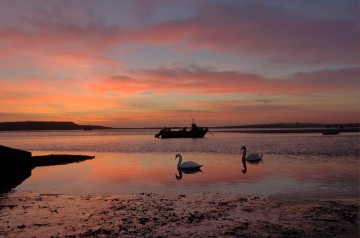
Such a vivid dream last night. I was standing on the beach at Mudeford, where I spent many happy holidays as a child. A strong wind was whipping up the waves, rocking the sailing dinghies riding up and down on the water in the harbour. I could hear the metal rigging repeatedly striking their aluminium masts and saw Peter Bath standing in the shallow water.'One of the south's most colourful and best loved businessmen', he died on December 22, 2006. I knew him as the owner of the beach hut next to ours. When we were 12 or 13 he lined a group of us up in front of his hut to hold an impromptu exercise class 'Peter says touch your toes - now jump up in the air!' Soon dozens of kids from the beach were joining what became a daily ritual. When we were older he took us water-skiing and on mackerel fishing trips and as a teenager I joined in with nightly games of 'bankrupt whist'. He was always the kindest, most jovial of uncles I never had.
Some wondered why the owner of a small airline and a chain of travel agents chose to spend three weeks of every year in a wooden hut without a bathroom that was less than 24 foot square. Truth was that he (and we) were blissfully happy doing the simplest things: wandering over Hengistbury Head with its rhododendrons and Iron Age barrows, walking down the beach for ice cream in the beach café, fishing for crabs from the ferry mooring or just watching spectacular sunsets over Christchurch Priory.
In my dream Peter stood in the water holding the painter of a fast blue Solo sailing dinghy. He had just rigged it and the boom was jiggling back and forth in the breeze - as if the boat was just waiting to get sailing. Peter held out the boat's rope to me, inviting me to climb in and sail off across the harbour.
-
Gentleman's outfitters?
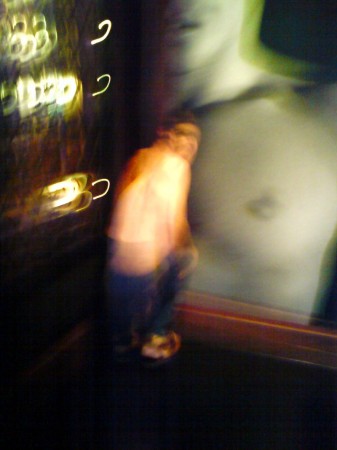 Abercrombie & Fitch sound a little like 'Are You Being Served' but young Mr Grace would have a very funny turn if he'd been in there during the first few weeks of their 'flagship' London branch off Saville Row. A shirtless young man who (err) looked like he needed a good meal was in the entrance and beyond it was more club than shop... I was asked if I wanted his photo so thought I'd try out my new cameraphone and got this - Francis Bacon would have approved. What they meant was that I could have a Polaroid of him - which is here for comparison.
Abercrombie & Fitch sound a little like 'Are You Being Served' but young Mr Grace would have a very funny turn if he'd been in there during the first few weeks of their 'flagship' London branch off Saville Row. A shirtless young man who (err) looked like he needed a good meal was in the entrance and beyond it was more club than shop... I was asked if I wanted his photo so thought I'd try out my new cameraphone and got this - Francis Bacon would have approved. What they meant was that I could have a Polaroid of him - which is here for comparison. -
Taking the night train on Auden's anniversary
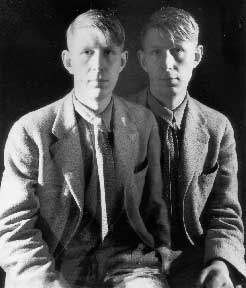 Pleasing to find the GPO's film Night Mail on YouTube, not least because of the 3D lettering in the title sequence. Auden's words have such terrific over-the-tracks rhythms in the 1936 short which apparently 'starred' a parallel-boilered locomotive 'Scots Guardsman'.
Pleasing to find the GPO's film Night Mail on YouTube, not least because of the 3D lettering in the title sequence. Auden's words have such terrific over-the-tracks rhythms in the 1936 short which apparently 'starred' a parallel-boilered locomotive 'Scots Guardsman'.This photograph by Beaton shows Auden pale and interesting, rather than with his celebrated old man's limestone pavement of a face.
One hundred years after his birth there's much debate as to his ultimate literary merit, with conferences and even a dedicated website. In 1972 he was guest of honour on Michael Parkinson's chat show. How many poets achieve that today? Whatever posterity's judgement, the Night Mail is reminiscent of rap poets like Benjamin Zephaniah.
These fashionably dumbed-down days, Zephaniah is most definitely in the poetic driving seat, with Auden lost in a cloud of smoke somewhere in the buffet car.
-
Waited on royally
A fine Sunday afternoon in June which we were making the most of by cycling in Windsor Great Park to Saville Gardens. The day before had been Her Majesty the Queen’s 80th birthday, and the mood in her home town seemed particularly happy. Sunlight slanted through the trees as we pedalled up the gentle rise that leads from the town towards the Cumberland Lodge crossroads. Conditions were ideal for cyling: scarcely a breeze, the narrow roadways free of traffic aside from a few other cyclists and walkers.
I was the first to the crossroads, getting there just as a dark coloured Daimler drew up at the turning to my right. We were due to go straight ahead, so I waited for the Daimler to give an indication which way it was heading. The driver was lost beneath a pale blue hat of the kind usually only seen on matronly women at weddings. Whilst the Daimler’s driver dithered I thought how small she must be to fit in the car complete with hat.
For what seemed a minute or more the Daimler waited. Even on a fine day, this indecision was becoming irritating. Just as I thought of making hand signals of a kind not promoted by the Highway Code – or at the very least shouting something about old bats being unable to make up their minds – the car pulled into our turning and I saw that the driver was in fact the Queen.
Protocol and tempers were preserved and we went on separate ways without further difficulty: can I please have my invitation to the garden party now? -
Breaking the Code at Progress
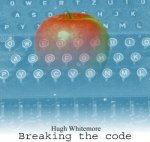 There isn't usually a stampede to the box office when a play is described as being 'about ideas', or the importance of valuing mathematicians like Alan Turing. But in the case of 'Breaking the Code' these are reasons enough to see a play which in fact has a great deal more to offer.
There isn't usually a stampede to the box office when a play is described as being 'about ideas', or the importance of valuing mathematicians like Alan Turing. But in the case of 'Breaking the Code' these are reasons enough to see a play which in fact has a great deal more to offer.
Whitemore's biographical play weaves three intriguing strands together: the first is historical and describes the breaking of the enigma code during the Second World War; the second is about our failure to celebrate the importance of intellectual ideas, and in particular the work of computer pioneer Alan Turing; the third is a human story about a man who has reached a crisis because society condemns him just for being who he is.
Communicating all this in two hours places enormous demands on director and cast and in particular on the lead. It's not at all easy to keep up the energy on stage during a play that contains several long speeches about mathematical concepts most of the audience will never have heard of. Furthermore, the sequence of the play is not chronological, since it interweaves scenes from Turing's childhood with others from his adult life. The small stage at the Progress provides little opportunity for lavish sets and elaborate scene changes.
All of these difficulties were triumphantly overcome in the performance I saw last night. A real passion for telling a powerful story simply and effectively was evident in some excellent work by director and cast. Attention to detail showed in every scene.
 As Turing, Mark Simmonds was highly compelling in a finely-observed performance of considerable dramatic range. The brilliantly simple set was a striking visual metaphor for code-breaking. Peter Cockman gave an impressively naturalistic performance as Knox. Jane Bertrand perfectly caught the look of the period as she took her character through 40 years as Turing's mother. Mark Taylor was nicely understated as the policeman Ross, switching from oily charm to barely concealed repugnance as Turing's story was uncovered. Matthew Wellard more than proved the sex appeal of the string vest (of all things) in a confident and likeable performance as Turing's lover.
As Turing, Mark Simmonds was highly compelling in a finely-observed performance of considerable dramatic range. The brilliantly simple set was a striking visual metaphor for code-breaking. Peter Cockman gave an impressively naturalistic performance as Knox. Jane Bertrand perfectly caught the look of the period as she took her character through 40 years as Turing's mother. Mark Taylor was nicely understated as the policeman Ross, switching from oily charm to barely concealed repugnance as Turing's story was uncovered. Matthew Wellard more than proved the sex appeal of the string vest (of all things) in a confident and likeable performance as Turing's lover.
Every other member of the cast more than pulled their weight in a highly enjoyable ensemble piece that was entirely without the weak individual contributions that sometimes mar non-professional theatre. This is a production to be remembered for its quality and for its fire.
www.progresstheatre.co.uk
www.turing.org.uk -
'They shall not grow old as we grow old'
Plaintive thoughts on Remembrance Day morning
A cold, grey morning on a village green in Oxfordshire. A patch of marble chippings and three of us clutching our wreaths, lined out before the little war memorial.
The names of a dozen or so from the village, fallen in two World Wars. The parish priest's surplice catches in the breeze, but his voice is that of a millitary chaplain, clear and uncompromising.
He calls out the prayers for peace and reconciliation. A light aircraft drones overhead, an aimless buzzing. "Perhaps it's Douglas Bader!" – a quiet voice behind me jokes.
To my left, a representative of the British Legion. She is smartly dressed, as she is every year; gloved, medals pinned to her coat: "or it could be my Tommy!" she says, so softly.
We walk to the memorial in turn, gently place the wreath, step back and bow our heads for a few moments. The British Legion standards are dipped and then are raised again as we all declare 'we shall remember them!'.
Afterwards a frail hand suddenly rests on my arm. At the memorial, for a moment, she stumbled and almost fell: "trouble is I'm not used to these high shoes any more". And then a smile and "goodbye then – until next year!".
-
Merlin's magic phone
By the sea below Tintagel Castle in Cornwall is a great tunnel of a dark cave, known locally as Merlin's Cave.
Visiting earlier this year I decided to clamber rocks to reach the opposite mouth of the cave where it gives out on the open sea. I got to a rock pool and reckoned I should be able to jump across it. As I leapt across, my mobile phone decided to make its transit by a different route, shooting out of my pocket and landing not on the other side but beneath the surface of the water. I fished it out and washed it through with mineral water. After 24 hours on a hot radiator the phone worked as well as it ever had.
Some six months something strange began to happen. During calls, made at home, several friends asked where I was. From the sound of the call, all of them thought I was by the sea, or at the very least by running water. Perish the thought that the sound of Merlin's Cave had somehow entered the phone, and was calling it back to Cornwall...
-
The getting of instant wisdom and 'optimal flow experience'
According to a recent newspaper report teachers (presumably including part-time teachers like me) 'experience higher levels of enjoyment and optimal flow experience than people working in comparable careers,'... 'Psychologists define "optimal flow experience" as a measure of enjoyment, concentration and absorption in a task, a concept recognised and reported by 44 per cent of teachers compared with 34 per cent of workers in other fields'.
The term (apparently first coined by Mihaly Csikszentmihalyi) was a new one to me, but it describes a mental state I recognise well enough. When my absorption and focus is so all-involving that time seems to pass in a flash, this is when I 'go with the flow'. According to Csikszentmihalyi 'The ego falls away. Time flies. Every action, movement, and thought follows inevitably from the previous one, like playing jazz. Your whole being is involved, and you're using your skills to the utmost.' Yoga practitioners are apparently among those more likely to experience flow states.
Csikszentmihalyi may have coined the term, but he certainly didn't invent it. The links are clear enough between this idea of loosing oneself in the flow of the moment and ancient eastern philosophy such as Zen, martial arts and Taoism. Perhaps the ultimate flow state is that union with the godhead called Nirvana in Buddhism and Heaven in Christianity.
The spiritual appetites of so many of us in the west seem to be fuelled by a quest for a refuge from the buzzed up state of hyper-stimulation that passes for everyday life among the money rich and time poor. In an attempt to serve this need, a new condensed edition of the Bible which can be read (without poetry) in 100 minutes was announced this week. But how credible are the mix-and-match forays into no commitment, off-the-shelf religious experience that some of us indulge in? And does organised religion offer a path anymore, when it is so very fallible, so reliant on creaking dogma and science has boxed it into an ever smaller corner?
In a broadcast this evening, the BBC's former India correspondent Sir Mark Tully denounced spiritual practice divorced from organised religious tradition. For him this is merely self-satisfying navel gazing. At its best, evensong in my parish church sometimes offers me a space for contemplation and a 'flow' in the power and beauty of its poetry and reassuring ritual. A repeated television series called 'Monastery' is currently chronicling 40 days spent in a Benedictine house by five men from very different backgrounds. I am finding this particular slice of reality TV very involving. It asks questions of me that I want to put some real effort into attempting to answer. When I get a minute, of course.
